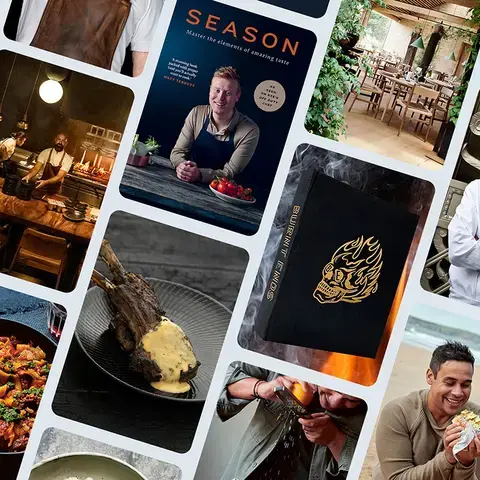
Grigorii Shcheglov via Unsplash
Michelin stars: blessing or curse?
The Michelin star remains the gold standard for chefs and whether they admit it or not, it’s the one accolade they crave. But when the star can be a burden and even a curse that can portent the closing of a restaurant, why is it that their light has never dimmed?
We’ve all read the stories of chefs handing back their Michelin stars, having had enough of the added pressure. Marco Pierre White deemed the Michelin inspectors unqualified to judge his work and handed back three stars at the height of his powers. French chef Sébastien Bras also handed back three while Julio Biosca of Casa Julio close to Valencia, returned his one, describing the Michelin system as “burdensome.” Frederick Dhooge of 't Huis van Lede in East Flanders, Belgium, famously gave back his star so he could be free to cook fried chicken if he wanted.
As more and more countries clamor to host the Michelin Guide, a privilege they pay handsomely for, the power of the Guide seems to grow year on year, despite emerging evidence to suggest that the accolade can harm a restaurant’s long-term prospects.
A recent study published in the Strategic Management Journal has found that restaurants that received a Michelin star were more likely to close in subsequent years because of added pressure to their value chains. Daniel B. Sands of University College London examined the effect of third-party evaluators’ reviews, ratings, and rankings in creating or damaging value for restaurants.
One would simply assume that landing a Michelin star for a restaurant would mean more attention, more bookings, greater demand, and higher mark-up for restaurants, but that’s not always the case.
Creating a baseline sample by compiling a list of newly opened restaurants in New York between 2000 and 2014 that received a New York Times starred review, Sands then tracked which restaurants also received a Michelin star, and which restaurants remained open through 2019.
Sands then met with the owners of the restaurant to interview them about what effect the star had on their restaurants and whether they would do things differently both before the star and after. The major problems that arose from the Michelin star status including increased customer expectations and intensified bargaining problems with landlords, suppliers, and employees. Staff retention also became a problem as opportunities arose for workers once their restaurant received a star.
Owners also described a change in clientele, with the crucial regular customers often coming in less regularly, while new customers, with higher expectations, would often come to the restaurant from out of town.
Not all restaurants suffer from gaining a Michelin star: many thrive and move forward to receive a second or even a third star. What is crucial is how restaurant owners react to receiving the star. It might be tempting for a restaurant to adapt and change what they do to accommodate a changing clientele—short-term gain in favor of longer-term business sustainability. Business is all about relationships and securing and maintaining the most important ones are always going to be crucial to protecting your business.
“The best way to manage this is: We recognize that third-party ratings, rankings, reviews come with potential changes or potential new challenges,” Sands says. “Figuring out what those are for your business and figuring out how to get in front of managing them, is ultimately the best way to ensure that—if there are positive effects—that you capture value from them. And if there are negative effects or potential negative consequences, that you’re able to mitigate them.”
The Michelin star will always be the accolade chefs lust after, even as various other third-party reviewing award systems proliferate. For the chef, who dares to follow their dream of running a restaurant kitchen, who toils in the heat of battle at the stove, who sacrifices any semblance of a normal life in order to serve people they will probably never even meet, the Michelin star represents the irresistible validation that their talent is appreciated and hard work and sacrifice are worth it.
So many chefs dream of gaining a Michelin star, but how many actually think about what effect it will have on their business and what steps they can take to mitigate any negative effects? Maybe that’s just asking too much from chefs who notoriously lead with the heart. Perhaps it’s for the front of house restaurateur to consider.













